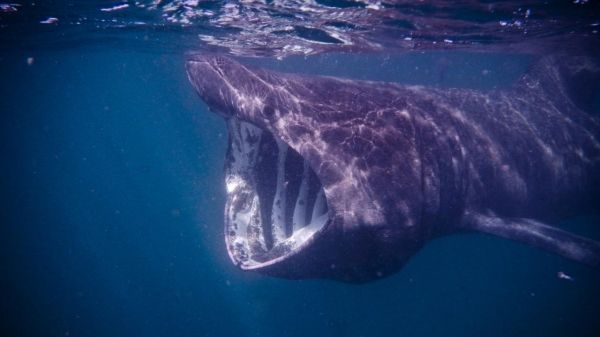About the size of a small school bus, the basking shark is the second largest fish in the ocean and is found in temperate and tropical waters across the globe. In the mid-1900s, basking sharks were observed by the thousands each year off California’s coast. Now they are rarely seen at all in this region, called the California Current Ecosystem, or CCE.
A study from the University of California, Davis, and NOAA Fisheries’ Southwest Fisheries Science Center confirms a striking decrease in basking shark sightings in the CCE after the 1970s and 1980s and examines what is driving their presence and distribution. The work is published in the journal Frontiers in Marine Science.
The findings hold implications for the global conservation of basking sharks, which are classified as endangered by the International Union for Conservation of Nature’s Red List.
Continue reading at University of California Davis
Image via University of California Davis


